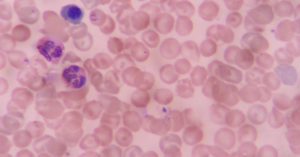In healthcare, time can often be the difference between life and recovery. Imagine a scenario where a patient needs urgent medical treatment abroad, but the journey home becomes challenging, causing delays that could worsen their condition. This is where the “medical repatriation” concept steps in – a process aimed at swiftly and safely returning patients to their home country for essential care. This guide delves into 15 ingenious ways to expedite medical repatriation, ensuring that individuals receive the timely treatment they deserve. From cutting-edge technology to streamlined logistics, join us as we explore these innovative solutions that hold the power to reshape the landscape of healthcare transportation.
15 Strategies For Accelerating Medical Repatriation
Telemedicine Pre-Assessment:
Before initiating repatriation, leverage telemedicine to conduct thorough pre-assessments of patients’ conditions. Skilled medical professionals can evaluate the severity of the medical situation remotely, ensuring that appropriate resources and medical teams are ready upon arrival.
Dedicated Medical Repatriation Teams:
Create specialized teams encompass medical experts, logistics coordinators, legal advisors, and communication specialists. This multidisciplinary approach ensures that all aspects of repatriation, from medical care to travel arrangements, are managed cohesively and promptly.
Global Network Partnerships:
Establish strategic partnerships with medical facilities, airlines, and ground transportation providers worldwide. These partnerships facilitate quick access to medical expertise and transportation resources, enabling a seamless patient transition across borders.
24/7 Command Centers:
Develop 24/7 command centers with professionals capable of making swift decisions and coordinating repatriation efforts in real time. These centers serve as central hubs for communication, ensuring that any unforeseen challenges are addressed promptly.
Air Ambulance Services:
Deploy specialized air ambulance services equipped with cutting-edge medical equipment and staffed by experienced medical teams. These services provide a controlled environment for critical care during transit, ensuring patients’ well-being throughout the journey.
Pre-Negotiated Agreements:
Establish pre-negotiated agreements with foreign hospitals and governmental authorities. This streamlines bureaucratic processes, expediting paperwork and authorization for entry, treatment, and repatriation, minimizing delays.
Advanced Medical Documentation:
Develop comprehensive medical documentation that outlines the patient’s condition, treatment plan, and necessary accommodations. This documentation ensures that immigration checkpoints and authorities are fully informed, reducing potential barriers to swift repatriation.
Utilize Technology:
Integrate advanced tracking and monitoring technologies into the repatriation process. Real-time patient condition updates, and transportation progress can be shared with relevant stakeholders, allowing for better decision-making and transparency.
Medical Escort Services:
Provide trained medical escort services where skilled healthcare professionals accompany patients during the repatriation journey. These professionals can deliver continuous care, administer medications, and respond to medical emergencies.
Emergency Airports:
Designate specific airports as emergency repatriation hubs strategically located for optimal global coverage. These airports should have medical facilities, streamlined customs, and immigration procedures, and efficient transportation links to ensure smooth transitions.
Medical Repatriation Agreements with Insurance Providers:
Collaborate with international insurance companies to establish pre-approved medical repatriation agreements. This enables smoother coordination of financial aspects and guarantees prompt approval for necessary medical transport.
Multi-Language Support and Cultural Sensitivity:
Train repatriation teams to offer multi-language support and cultural sensitivity. Clear communication and understanding of patients’ needs contribute to faster decision-making and a more comfortable experience during repatriation.
Fast-Track Customs and Immigration Procedures:
Work with relevant authorities to establish fast-track customs and immigration procedures for medical repatriation cases. This can include designated lanes and streamlined processing to ensure minimal delays at border checkpoints.
Collaboration with Embassies and Consulates:
Forge partnerships with embassies and consulates of patients’ home countries. These diplomatic channels can expedite necessary clearances, provide legal assistance, and prioritize patients’ repatriation needs.
Virtual Repatriation Coordination:
Utilize virtual and augmented reality technologies to facilitate remote coordination of repatriation efforts. Medical professionals can visually assess patients, collaborate on treatment plans, and guide local healthcare providers, reducing the need for physical presence and expediting decision-making.
Efficiency in Healthcare: Insights from Aleem Dar Foundation
Efficiency is a cornerstone in healthcare, especially in processes like medical repatriation—swiftly transferring patients for essential treatment. The Aleem Dar Foundation, led by cricket umpire Aleem Dar, offers a valuable lesson in streamlined healthcare.
Much like the foundation’s rapid aid to those in need, quick medical repatriation is crucial for timely treatment. The foundation’s proactive approach highlights the need for coordinated efforts and prompt execution in healthcare processes.
Just as the Aleem Dar Foundation’s commitment accelerates positive change, healthcare strategies can mirror this urgency. By adopting such strategies, we can transform healthcare systems and ensure patients receive vital care promptly.
Final Take
In healthcare, we’re finding faster ways to bring people home for vital treatment. These strategies unite technology, teamwork, and compassion to speed up the process. With a global network, advanced planning, and caring support, we’re erasing the barriers that once delayed care. This journey symbolizes our commitment to ensuring everyone gets the help they need, no matter where they are. Together, we’re shaping a future where healing knows no boundaries and people can find hope and health, even across great distances.



